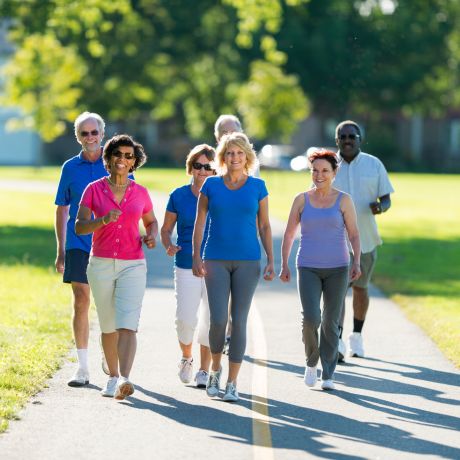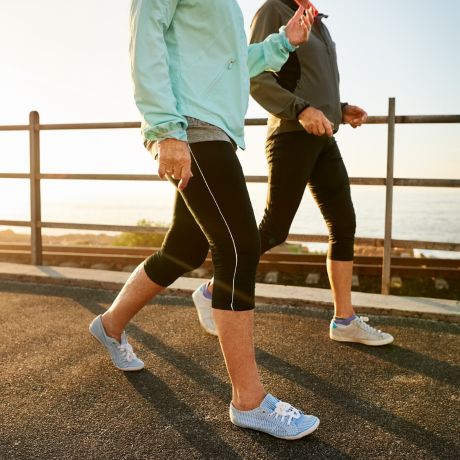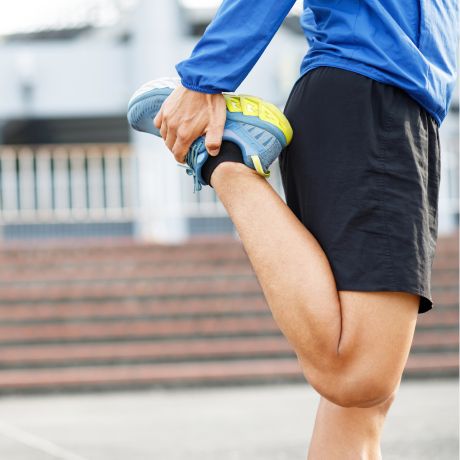In today’s busy world, finding time for exercise or figuring out can feel like an unattainable task. Nevertheless, what if I told you that only one hour a day could potentially change your life for the higher? Walking, a straightforward and simply accessible type of exercise, has been proven to have many physical and mental health advantages.
Actually, I even have been walking an hour a day for nearly five years now, so I do know firsthand the advantages you possibly can experience once you start walking daily. This text will explore the incredible mental and physical health effects of walking one hour a day for a month, backed by my personal experiences, other people’s success stories, scientific research, and practical suggestions for getting began.
Table of Contents
- My Experience Walking One Hour a Day For a Month
- Other Every day Waking Success Stories
- The Physical Advantages of Walking One Hour a Day
- The Mental Advantages of Walking One Hour a Day
- How To Get Began And Suggestions for a Successful 30-Day Walking Challenge
- Safety Concerns and Precautions To Take
- Outro
My Experience Walking One Hour a Day For a Month
For a lot of, the concept of committing to walking for an hour daily might appear to be a frightening task. Me included. Nevertheless, I made a decision to tackle the challenge and push myself to do something outside my comfort zone.
Every day, no matter whether it’s raining or shining, I finish training my morning clients and hit the pavement. The initial struggle was finding the motivation actually to do it. Still, over the course of a few weeks, I began to benefit from the time outside, and I discovered that my mental and physical well-being improved significantly.
Because the days progressed, I began to notice increased energy levels, higher moods, and even improved sleep quality. Walking became not only a type of exercise but in addition a therapeutic way for me to take a break from the stresses of my on a regular basis life and allowed me to place my phone away for an hour.
It’s price mentioning that you just haven’t got to walk outside daily for that hour; that was a private challenge for me and never something I like to recommend to everyone. If the weather is bad or you only do not feel like walking outside, I like to recommend walking on a treadmill.

Other Every day Walking Success Stories
While my journey is only one example, countless others on Reddit and other web sites have experienced similar or much more remarkable transformations through day by day walking, from weight reduction success stories about how they saw improved mental health and overall well-being.
Take u/jefferson_waterboat from Reddit, who said, ¹
Or this user, u/Itslateyall, who struggled for nine years until she began walking “²

The Physical Advantages of Walking One Hour a Day
Walking is commonly underrated as a type of exercise, but the advantages are undeniable for people who’re getting began or simply want more physical exertion. Unlike more complicated activities, equivalent to running or weightlifting, walking is low-impact and accessible to individuals of all ages and fitness levels.
Here is an inventory of the largest advantages you possibly can experience walking an hour a day for a month.
1. Cardiovascular Health Improvement
Walking consistently may help to enhance cardiovascular health by increasing heart rate and circulation. This increase in heart rate and circulation, in turn, lowers blood pressure and lowers the danger of heart disease, stroke, and other conditions. Walking strengthens the center by promoting higher blood flow and oxygen delivery throughout the body’s tissues. It improves its efficiency, which in studies has been shown to diminish the probabilities of getting a heart problems.³
2. Weight Management and Metabolism Boost
Walking is a simple and effective technique to prevent obesity-related conditions like diabetes, heart disease, and hypertension. Even if you happen to can only hold a moderate pace, walking can burn many calories, making it a wonderful weight reduction and maintenance tool.⁴
3. Muscle Strength and Endurance
Walking is not only a cardio workout; it also engages quite a couple of muscle groups, including the legs, core, and upper body, which might significantly improve muscle strength and endurance over time. As you get stronger, start incorporating hills, stairs, or resistance bands into your walking routine to challenge your muscles further.
4. Bone Health and Density
Walking is an exercise that helps strengthen bones and might even prevent bone loss related to aging and conditions like osteoporosis. By putting good stress on the bones through walking, the body is in a position to make the bones stronger and fewer vulnerable to fractures and breaks.⁵
5. Joint Health and Flexibility
Contrary to what many individuals say, walking is a style of exercise that is straightforward on the joints and may help improve joint health, reduce pain, and increase flexibility. Walking helps to lubricate the joints, reducing stiffness and inflammation and promoting a greater range of motion.⁶
6. Improved Digestion and Bowel Function
Considered one of the largest things I get from walking day by day is that walking stimulates digestion and bowel function by increasing blood flow to the digestive organs. This may help to cut back and even alleviate constipation and promote regularity.⁷

The Mental Health Advantages of Walking One Hour a Day
Besides the physical advantages you possibly can see once you walk an hour a day, it might also positively affect mental health and well-being. There have been studies conducted which have shown that regular walking can reduce stress, anxiety, and depression while improving mood and cognitive function.
These advantages will be improved much more by simply walking outdoors. So, connecting with nature can positively affect your mental well-being.
1. Stress Reduction and Leisure
Considered one of my favorite parts about walking is that it’s a natural stress reliever. This may help reduce cortisol levels, the body’s primary stress hormone, and increase feelings of rest, improved mood, and tranquility.⁸
I attempt to make sure that that I turn my phone on silent, and for your entire hour, I deal with the sights and sounds of nature, which distract my mind from worries and negative thoughts.
2. Enhanced Cognitive Function and Brain Health
While I didn’t really see significant improvements on this area, walking has been shown to improve cognitive functionality and brain health by increasing blood flow to the brain and increasing the expansion of recent neurons, particularly in areas related to memory and learning.⁹
This may lead to raised concentration, focus, problem-solving skills, and reduced risk of cognitive decline and dementia later in life.

How To Get Began And Suggestions for a Successful 30-Day Walking Challenge
In the event you’re inspired to try to tackle the 30-day walking challenge, listed below are a few of the biggest suggestions I give people to make sure that that you just start on the fitting foot and increase their probabilities of success.
1. Start Slow and Progressively Increase Intensity
In the event you’re just starting with physical exertion, I might recommend starting slow with shorter walks at a cushty pace and regularly increasing duration and intensity over time. Keep constructing the duration until you walk for your entire hour daily.
Constructing yourself up slowly allows your body to regulate to the increased activity and reduces the danger of injury or burnout.
2. Put money into Proper Footwear
I will be honest: I do not typically spend plenty of money on my shoes. In the beginning of my walking journey, I wore an inexpensive pair of tennis shoes that were well past their prime, leading to a ton of swelling and pain within the arches of my feet.
Buying a very good pair of walking shoes is something I highly recommend to people because they assist to offer a cushty, injury-free walking experience. Search for shoes meant for walking/running that provide adequate support, cushioning, and stability, and select a size that permits room to your feet to swell barely during longer walks.
In the event you’re unsure what shoes to get, consider visiting a specialty shoe store for knowledgeable fitting to make sure you find the proper pair to your needs.
3. Select Protected and Enjoyable Routes
Select protected and scenic routes that keep you inspired, excited, and motivated to maintain walking. My favorite places are often local parks, nature trails, or simply hitting the road around my home.
Find environments that provide variety in terrain and scenery. I also enjoy walking in areas inside a walking group because it motivates me to work harder, and it is sweet to satisfy latest people.
4. Track Your Progress
During your 30-day walking challenge, you are going to make progress, and it will be a very good idea to trace your progress along the best way. The best and best technique to track your progress is by utilizing a health or fitness tracker or app to watch your day by day steps, distance, and calories burned.
By recording these items, you possibly can easily see the improvements you’ve got been making and have a good time the small victories along the technique to keep you motivated and inspired.
5. Hearken to Your Body and Prioritize Rest
To successfully complete the one-month challenge, you could walk daily for an hour, with no breaks. Nevertheless, you continue to must hearken to your body. Whether it is begging for a time without work, I might recommend prioritizing rest and recovery as needed.
Also, suppose you start to experience any pain or discomfort during your walks. In that case, the challenge is not price getting hurt over, and I might say that you need to take a break and permit your body to heal before resuming activity.

Safety Concerns and Precautions To Take
Walking is a comparatively protected type of exercise. Nevertheless, taking certain precautions to avoid injury and stay protected while walking remains to be essential. A few of the easiest things to deal with include wearing appropriate footwear, staying hydrated, and being aware of your surroundings.
Before starting a walking challenge, seek the advice of your healthcare skilled to see if you happen to are healthy enough to exercise or have any underlying health conditions or concerns.
1. Stay Hydrated and Fuel Your Body
Staying hydrated is incredibly essential when walking, especially during hot weather or longer walks. Identical to with most types of exercise, drink loads of water before, during, and after your walks to forestall dehydration and maintain peak performance.
I typically bring a backpack with me in order that I can carry my water bottle on my walks; one other good idea could be to plan your route around water fountains or restrooms where you possibly can refill your bottle as needed. In the event you’re going to go on an exceptionally long walk, I might highly recommend bringing healthy snacks and perhaps some electrolyte packets to offer energy and support recovery.
2. Be Aware of Your Surroundings
Most of my walks are done out in nature, so I at all times have to concentrate on my surroundings and take precautions to make sure my safety while walking. Typically, I make sure that to present myself loads of daylight and go to pretty well-traveled routes.
I like to recommend on the lookout for well-lit and populated routes, especially when walking alone or in unfamiliar areas, and avoiding isolated or poorly lit areas where it’s possible you’ll be at greater risk of encountering potential dangers. In the event you live in the town or populated areas, listen to traffic, pedestrians, and cyclists, and after all, follow traffic signals and signs when crossing streets or intersections.
3. Warm-Up
While it’s not probably the most exciting thing on the earth, stretching before you walk can prepare your body for the activity ahead, helping to forestall injuries and improve flexibility.
Listed below are a couple of easy stretches I do daily before my walk and think that you need to incorporate into your warm-up routine:
Calf Stretch:
- Stand towards a wall with one foot forward and one foot back.
- Keep your back leg straight and your heel on the bottom as you lean forward, feeling a stretch in your calf muscle.
- Hold for 15-30 seconds, then switch legs.
Hamstring Stretch:
- Sit on a flat surface with one leg prolonged and the opposite barely bent, foot flat on the ground.
- Lean forward, reaching towards your toes while also keeping your back straight.
- Hold for 15-30 seconds, then switch legs.
Quadriceps Stretch:
- Stand tall with feet hip-width apart.
- Bend one knee and convey your heel towards your buttocks, grasping your ankle together with your hand.
- Gently pull your heel towards your buttocks until you’re feeling a stretch within the front of your thigh.
- Hold for 15-30 seconds, then switch legs.
To get probably the most out of your stretches, take your time with each stretch, specializing in slow, controlled movements and respiration deeply. It’s best to avoid bouncing or jerking movements, as this will cause injury. All the time hearken to your body and only stretch to the purpose of mild tension, never to the purpose of being in pain.

Ceaselessly Asked Questions
How Many Calories Can You Burn By Walking For An Hour Each Day?
The variety of calories you possibly can burn during a walk relies on aspects like body weight, walking speed, and the terrain. You may expect to burn roughly 200-300 calories per hour if you happen to can keep a brisk pace.
To maximise what number of calories you burn each time you walk, maintain a brisk walking pace that elevates your heart rate and challenges your muscles. It’s also possible to try incorporating intervals of upper intensity, equivalent to walking uphill or adding short bursts of added speed, which also can help increase what number of calories you burn.
No matter how much you walk, the calories you burn are just one aspect of weight management. Combining regular exercise with a balanced weight-reduction plan and other healthy lifestyle habits is just as essential to achieving weight reduction or maintenance.
How long does it take to see results from walking an hour a day?
Results from walking can vary depending on individual aspects. Still, many individuals begin to notice slight improvements of their energy levels, mood, and overall fitness inside just a few weeks of consistent walking. Nevertheless, the timeline for seeing more significant changes, equivalent to weight reduction or muscle toning, may vary from individual to individual.
You may expect to see more significant improvements in cardiovascular health, endurance, and stamina inside the first month of beginning a walking routine. As time goes on, it’s possible you’ll also begin to see changes in body composition, equivalent to reduced body fat and increased muscle tone.
If you need to see results faster, I like to recommend combining walking with other types of exercise, equivalent to strength training or yoga.
Can I lose belly fat by walking 1 hour a day?
In the event you’re just attempting to deal with losing belly fat, then I hate to inform you, but spot reduction is not possible. Nevertheless, usually walking may help reduce overall body fat, including belly fat, when combined with a healthy weight-reduction plan and lifestyle.
To completely maximize fat loss, drop some weight, and achieve a trimmer waistline, deal with making a calorie deficit by combining walking and strength training with a balanced weight-reduction plan that features loads of fruits, vegetables, lean proteins, and whole grains. Also, attempting to limit your intake of processed foods, sugary beverages, and excess calories may help prevent gaining belly fat and promote weight reduction.
Outro
Some may say that walking is simply too easy of an exercise, but in my experience, you possibly can improve your life with an hour of walking a day. You will begin to see significant changes in your body, fitness, and mental health.
The improvements you will note will probably motivate you to proceed the challenge well after you are done, so why not take step one, get outside of your comfort zone, and take the challenge of walking an hour a day for a month?
Citations:






